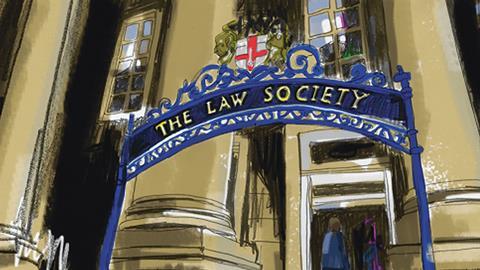In a positive and proactive move to remain at the forefront of complex political and legal developments across the jurisdiction of England and Wales, and during a particularly turbulent time in UK politics, the Law Society has transitioned its old Wales Committee to a new, stronger National Board for Wales.
Against the backdrop of the increasing devolutionary pressures and divergence in law between England and Wales, the Law Society Wales Office has faced a set of unique circumstances in seeking to maintain a strong policy and political presence in Wales, and ensure full representation for its members.
While from the outside, the abolition of the previous Wales Committee and its replacement with the new National Board for Wales may resemble bureaucratic relabelling, it is far greater than that. The transition to a national board is a recognition of the need to ensure that the Law Society meets the diverging challenges of the sector across a jurisdiction that now has two governments, two sets of ministers, two languages and diverging laws.
Before the establishment of the National Board for Wales, the Law Society in Wales had already assumed a strengthened and growing role in the policy and public affairs sphere. This was achieved through the running of the secretariat and the hosting of The Law Council for Wales, building a strong and mutually beneficial relationship with the Welsh government, increasingly influencing politicians across the spectrum, growing member engagement, and directly delivering member benefits such as the Cyber Essentials programme.
The transition to a full National Board will, for the first time, enable direct reporting to, and programmed dialogue with, the main Law Society Board around such Wales-specific work for members.
The National Board will be empowered to carry out local decision-making and intelligence-gathering that reflect the ongoing divergence from the historical England and Wales model of legal and political policy. The Board will consider matters of law and practice, policy and public affairs in Wales as well as overseeing the work of the Law Society Wales Office. Welsh members will continue to sit on TLS specialist policy advisory committees as they did under the old arrangements, covering areas as diverse as access to justice; civil justice; family law; mental health and disability; planning and environmental law; and housing law.
The real significance of the decision to create the National Board for Wales as a direct sub-group of the main TLS Board is that it comes at a time of ever-growing calls for the devolution of justice on the back of the conclusions and recommendations of the Thomas Commission. This is an issue that will dominate discussion on legal reform in Wales and remain high on the political agenda for several years to come.
Devolution of justice
Desire for constitutional and devolutionary reform, coupled with political positioning by the Welsh Labour government that seeks to ensure it is not politically outflanked by nationalist policies, has led to the position where the government in Wales is strongly driving discussions on the future options for devolution with a renewed energy and purpose. The conclusion of the Thomas Commission provided a lightning rod for the Welsh government that has empowered it to drive forward constitutional discussions around the future model of the UK. Following the publication this week of the work on the future of the constitution undertaken by Gordon Brown, discussions have taken place between first minister Mark Drakeford and Sir Keir Starmer regarding the scope and nature of the devolution of justice in future.
As the Welsh government’s stated policy vision becomes reality, the Law Society has worked to ensure that any plans for the justice system deliver tangible benefits for the people of Wales and ensure sustainability for the profession. Alongside existing policy positions, the National Board for Wales will work to ensure that the Society holds the necessary apparatus to advocate for our members across Wales as these changes are developed and implemented.
National Board for Wales discussion
The inaugural National Board meeting this week addressed a full agenda, encompassing a broad spectrum of political developments and member-driven activity across Wales. The meeting featured presentations from the Law Society Wales. The meeting began with contributions from president Lubna Shuja, chair of the Law Society Board Robert Bourns, and Ian Jeffery, the Law Society’s chief executive.
Mick Antoniw MS, counsel general and Welsh government minister for the constitution, discussed the ongoing relationship between the Welsh government and the Law Society. Jonathan Davies, Law Society head of Wales, presented on the Wales Annual Report & National Business Plan, which showcased the work the team in Wales has been completing, including securing a Welsh government grant of £100,000 to provide Cyber Essentials Accreditation for all members. Joshua Hurst, the newly appointed public affairs and policy officer, presented on the policy and public affairs vision of the Law Society regarding Wales over the next three-year business cycle.
The National Board for Wales is a promising indication of an organisation dedicated to its members’ differences as well as their similarities, and to ensuring that the Society remains at the forefront of debate and influence in Wales through a dynamic and turbulent political era.
- This article was submitted by the Law Society Wales Office




























2 Readers' comments